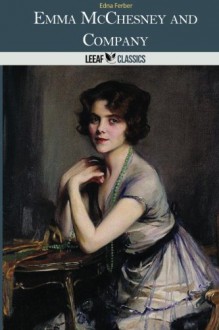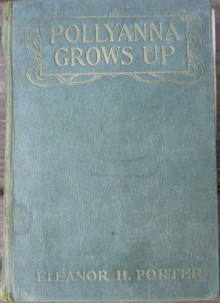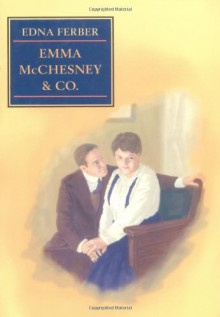

Knulp by Herman Hesse
Knulp is intelligent and witty and everyone likes him, but he has turned his back on having a career or a home or any of the conventional trappings of success. Instead he travels around, sleeping in fields and visiting friends. Because he’s so happy and charming, he has friends all over, and they’re all happy to shelter their vagrant pal for a little while. The novel was told from several different points of view and depicts different periods in Knulp’s life. As he gets older, it becomes clear that sleeping rough has taken its toll and that Knulp is not long for this world. He revisits his home town, which I found very touching. Then he has a philosophical conversation with god about his purpose in life, before lying down in the snow to sleep. The god business is SO not my kind of thing, but it was actually really well-done and I found it quite moving. The “cheerful wanderer” seems to be a “type” from this period. (For example, Maud Hart Lovelace’s Betsy is constantly talking about The Beloved Vagabond, but I don’t think I will ever read it because it is from 1906 and I’m certainly not going to make it to 2106.) This type is valorized in Knulp, but skewered in another book of 1916, I Pose.
The Valley of Fear by Arthur Conan Doyle
A top-drawer Sherlock Holmes novel! It has Professor Moriarty, a secret society, a long backstory, lots of contradictory clues... you can’t ask for more.

Emma McChesney and Co. by Edna Ferber
The longtime fans of my reviews (like, um, my brother and no one else) will remember that I adore Edna Ferber’s Emma McChesney series. So I’m not even sure how good this book even is, all I know is that I loved it. The best part is how closely this novel mirrors my recent life. Emma McChesney travels to Bahia and Rio, Brazil—just like me! Then she goes to Buenos Aires, Argentina—just like me! Then she meets Miss Morrissey—just like me! Oh no wait, that didn’t happen to me. Anyway, after a triumphant voyage selling a line of petticoats, she returns home and finally deigns to marry T.A. Buck, the head of the petticoat company who’s been courting her for the last two books. Then she spends three months in marital idleness, shopping on Fifth Avenue and attending important dinners, but she can’t stand it and returns to work at the petticoat company. This was a very subversive message for 1915, but Edna Ferber slides it right down your throat before you’ve even noticed. The most fun part is when a dowdy rich girl comes to the factory to lecture the shop girls on dressing respectably, but instead a nice Jewish working girl gives the rich girl tips on clothes and advises her to marry the poor man she loves. Unfortunately, it looks like this is the last Emma McChesney book.
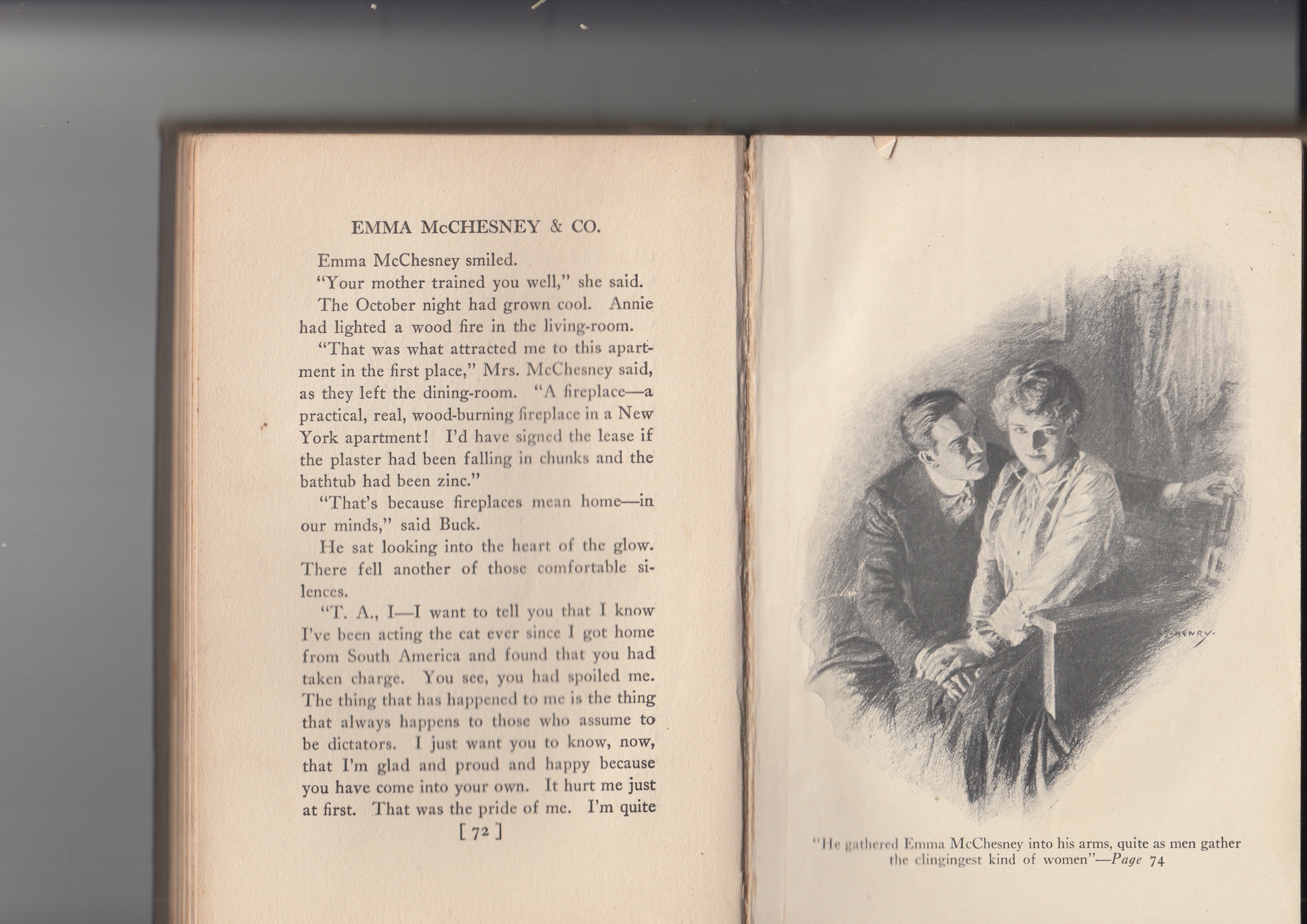


Polyanna Grows Up by Eleanor H. Porter
Remember how bad Miss Billy Married was? So actually I didn’t read the famous one last year, Pollyanna, just this sequel. Polyanna is an inspirational little orphan girl who has been cured of some kind of disability, and has been sent to cheer up a bitter old rich lady. Polyanna is continually playing “the Glad Game,” where no matter what kind of horrible thing has just happened, she will find something to be grateful for. This drives everyone totally bonkers, obviously, but eventually they all swallow the Kool Aid and become incredibly cheerful in the face of life’s adversity. Polyanna is mono-maniacally focused on her Game, so that she comes across as a bit unhinged. A sign of trauma?
Just this very day, my wife was telling me about a concept of acceptance she learned about from an Enneagram teacher named David Daniels, called an attitude of gratitude. But you’re not supposed to concur, condone, or capitulate to bad things that are happening. Polyanna is concurring, condoning, and capitulating all over the place. I’m not sure if I can explain what I mean, but there’s a reason Polyanna is one of the most infamously annoying characters in literature.
Polyanna finds an orphan boy with a disability for the bitter old rich lady to adopt. The lady thinks he might be her missing nephew but she can’t be sure; however, she decides she loves him either way.
Then we fast forward ten or twelve years and our author is presented with a problem. It’s cute (maybe) to have a child constantly playing the Glad Game, but in an adult it would be insufferable. Eleanor Porter actually does a pretty good job of turning Polyanna into a semi-normal human being, considering the situation Porter had created for herself.
Now the book gets a little bit fun, as a few love triangles develop, with many comical misunderstandings about who’s in love with whom, à la Three’s Company. There’s a part that’s really bizarre where Polyanna is almost gored by a wild boar (I think I’ve got this right.) But the one who really suffers from this mishap is the orphan boy with the disability, now also all grown up, because he was unable to rescue her, and he makes a big production out of it. Like many children’s book authors of this era, Porter really has a bee in her bonnet about disability. In the end, everything is sorted out—the orphans all come into their rightful inheritance and everyone is paired off with the right person.
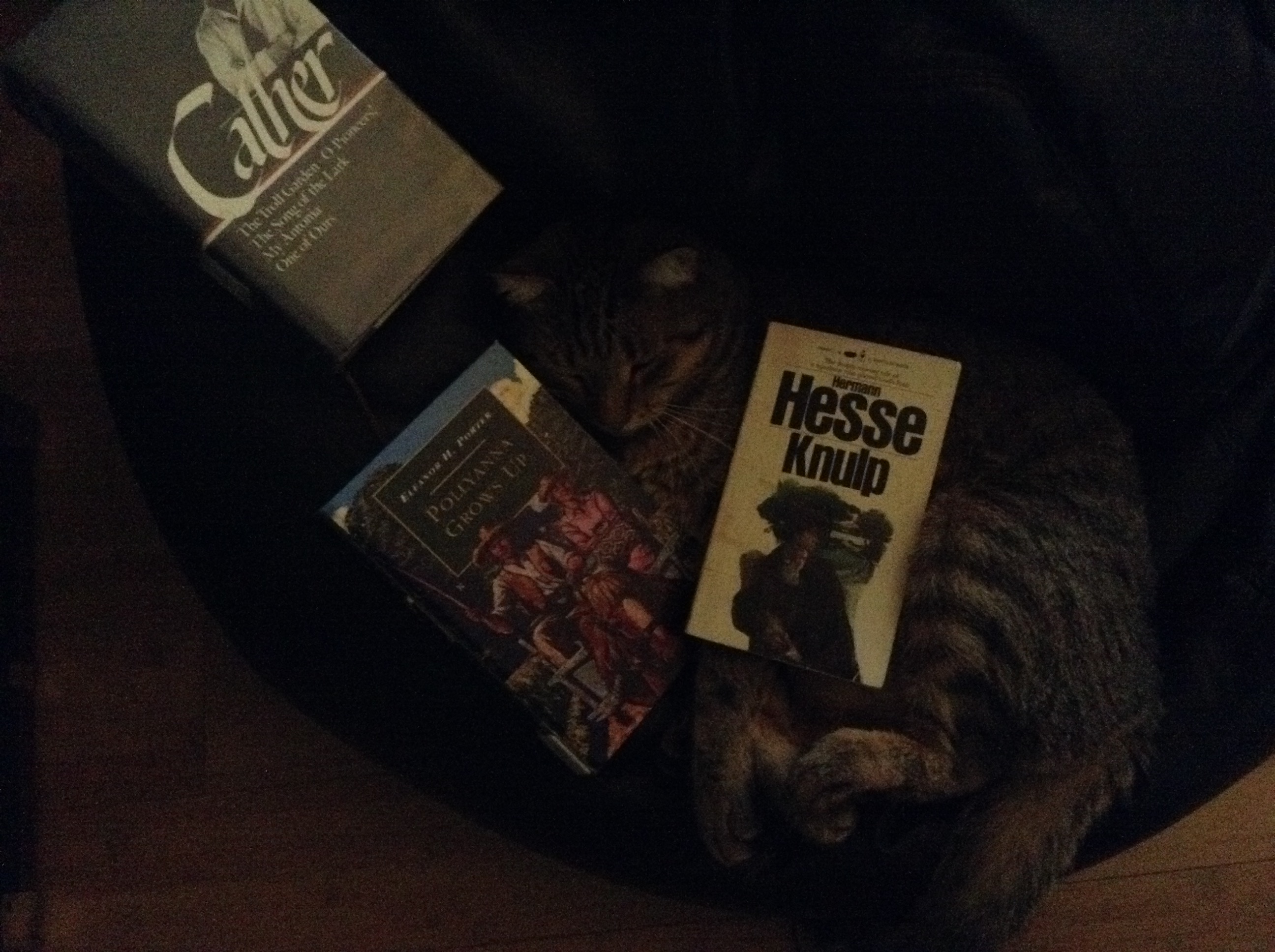
I Pose by Stella Benson
I had high hopes when I began this novel as it has a strong opening. It’s about a highminded young vagabond known only as “the gardener” (because he tells people some claptrap about how the world is his garden) and a woman known only as “the suffragette.” The author explains frankly that these people are poseurs who don’t know how to be their true selves, and they wander the world disapproving of everyone and trying to be avant garde, unable to have authentic relationships with anyone, including themselves. I guess there have always been people like this, and there are certainly still people like that today. The author also promises that even though one of the main characters is a sufragette, it’s not “one of those books,” which made me feel relieved after my bad experience with Delia Blanchflower last year. But she lied! It is one of those books.
I Pose completely falls apart when the characters alight on a Caribbean island that is an English colony. This is the most racist book I have ever encountered—it makes Tarzan of the Apes and Penrod look real good. Reading this novel, I felt unclean. I don’t really want to get into the details, but I will say, I think a lot of times people have this idea that racist English people from a century ago were just old-fashioned but meant no harm; it was all kind of a misunderstanding, god love ‘em. I Pose makes it clear that this rosy assessment is not the case—one hundred years ago, racists hated black people with vicious cruelty and made fun of everything they could think of about them and literally did not care if they lived or died.
There was a kinda interesting part at the end where the suffragette goes into a poor neighborhood in London and tries to get the women to unionize, leave their alcoholic and abusive husbands, etc. but all her schemes backfire. This bit seemed heartfelt and true to life. Now I’m going to go ahead and spoil the ending, since I don’t recommend this book anyway. The gardener and the suffragette decide to get married, but instead, the suffragette shouts, “I hate god!” and runs into the church and blows it up, killing herself. The end. What??
I looked up Stella Benson on Wikipedia to see what was her deal, anyway, and it turns out she was a feminist and a suffragette (it wasn’t clear from the novel which side she was on) and that she lived all over the world, including China and Vietnam. From her bio I would think oh, I can’t wait to read a book by this neglected woman writer but having read this novel I say, never again, Stella Benson, you deserve to be forgotten.

 Log in with Facebook
Log in with Facebook 




